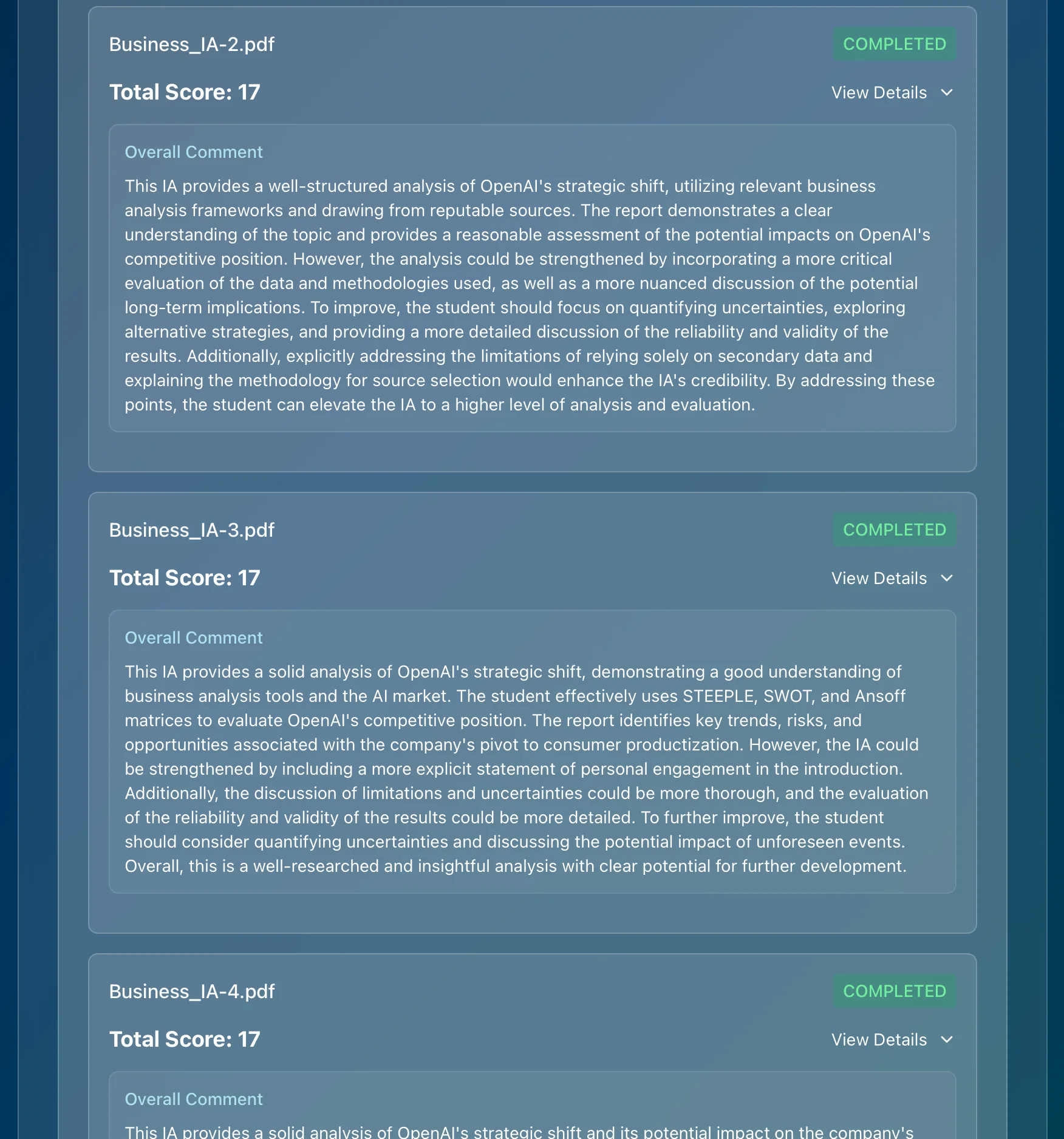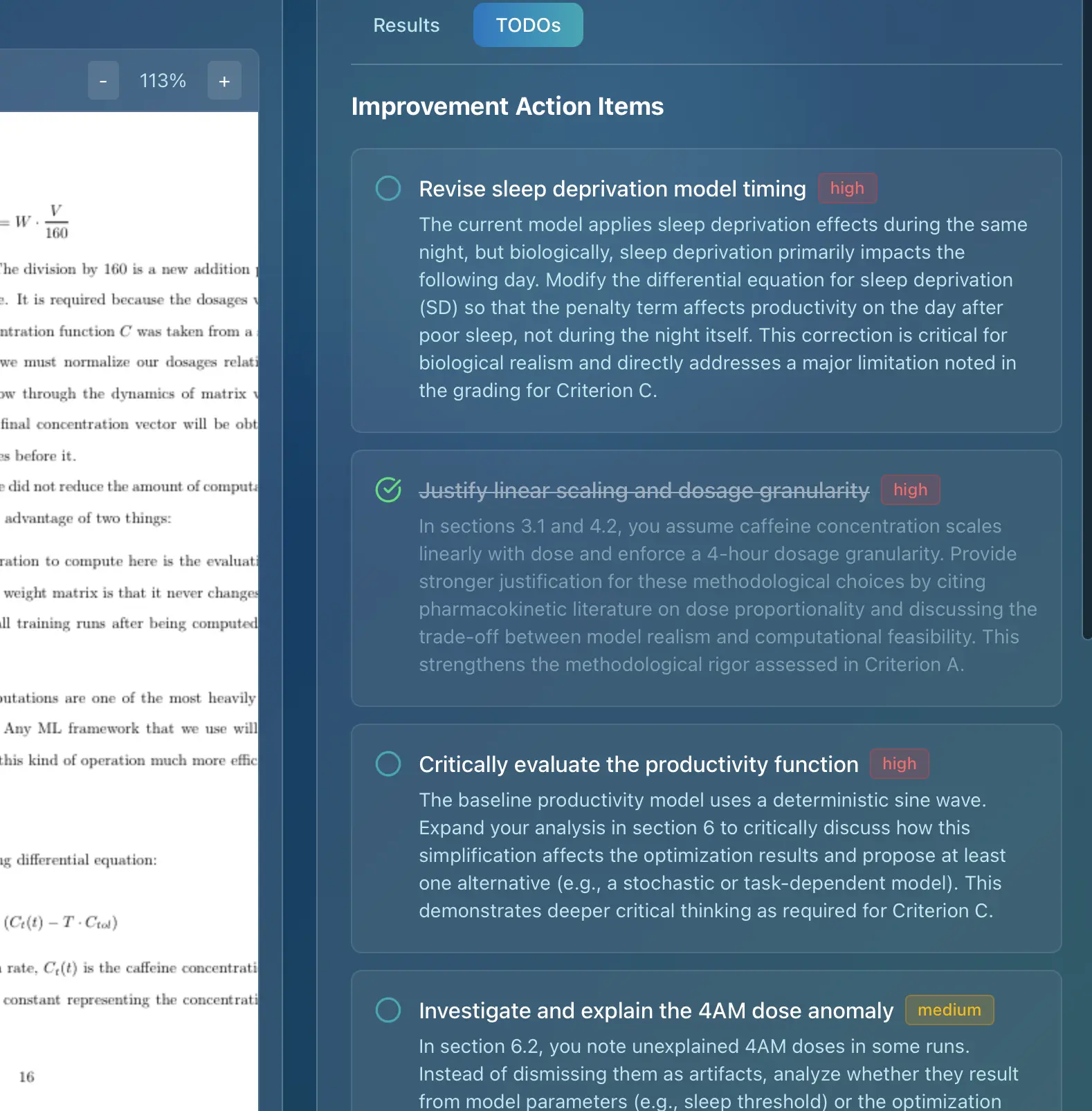How to Balance IB Coursework and CAS Requirements
Balancing the demands of the International Baccalaureate (IB) Diploma Programme can feel overwhelming, especially when trying to juggle rigorous coursework with the Creativity, Activity, Service (CAS) requirements. You're not alone! Many IB students struggle to find the right equilibrium. This guide provides actionable strategies to effectively manage your time, prioritize tasks, and excel in both your academic subjects and your CAS experiences. We'll explore practical tips, time management techniques, and planning strategies to help you navigate the challenges of the IB program and achieve your full potential. Let's dive in and conquer the IB!
Understanding the IB Challenge: Coursework and CAS
The IB Diploma Programme is designed to be academically challenging, requiring you to delve deeply into six subjects while simultaneously engaging in meaningful CAS experiences. Understanding the unique demands of each component is the first step towards achieving balance.
- IB Coursework: This involves studying six subjects, completing internal assessments (IAs), and preparing for external examinations. The workload can be intense, demanding consistent effort and effective study habits.
- CAS: Creativity, Activity, Service is a core component of the IB Diploma Programme, requiring you to engage in projects that foster personal growth, collaboration, and a sense of responsibility towards the community.
The key to success lies in finding a sustainable balance between these two crucial aspects of the IB program.
Struggling with IB Assessments?
Get instant, detailed feedback on your work with AI that understands IB criteria.

Effective Time Management Strategies for IB Students
Time management is paramount for IB students. Here are some proven strategies to help you stay organized and on track:
1. Prioritize and Plan
- Create a Master Schedule: Start by mapping out all your commitments, including classes, extracurricular activities, CAS projects, and personal time. Use a digital calendar or planner to visualize your week.
- Prioritize Tasks: Use the Eisenhower Matrix (Urgent/Important) to categorize tasks and focus on high-priority items first. This will help you avoid getting bogged down in less critical activities.
- Break Down Large Tasks: Divide large assignments or projects into smaller, more manageable steps. This makes the overall task less daunting and allows you to track your progress more effectively.
2. Utilize Time-Blocking Techniques
- Allocate Specific Time Slots: Dedicate specific blocks of time to different activities, such as studying for a particular subject, working on your IA, or engaging in CAS.
- Minimize Distractions: During your allocated study time, eliminate distractions such as social media, email, and unnecessary notifications.
- Take Regular Breaks: Incorporate short breaks into your study schedule to avoid burnout. Use these breaks to stretch, grab a snack, or engage in a relaxing activity.
3. Leverage Technology
- Use Productivity Apps: Explore apps like Trello, Asana, or Notion to manage your tasks, track your progress, and collaborate with others.
- Set Reminders: Use your phone or calendar to set reminders for important deadlines, meetings, and appointments.
- Utilize Online Resources: Take advantage of online resources such as study guides, practice exams, and educational videos to supplement your learning.
Integrating CAS into Your IB Schedule
CAS should not be viewed as an add-on but rather as an integral part of your IB experience. Here's how to effectively integrate CAS into your schedule:
1. Choose Meaningful CAS Activities
- Align with Your Interests: Select CAS activities that genuinely interest you. This will make the experience more enjoyable and increase your motivation.
- Consider Your Strengths: Choose activities that allow you to utilize your strengths and develop new skills.
- Reflect on Your Learning: Regularly reflect on your CAS experiences to identify what you've learned, how you've grown, and how you can improve.
2. Plan and Schedule CAS Activities
- Allocate Dedicated Time: Just like with your academic subjects, allocate specific time slots for your CAS activities.
- Integrate CAS into Your Routine: Look for opportunities to integrate CAS into your daily routine. For example, you could volunteer at a local charity on weekends or participate in a sports team after school.
- Document Your Progress: Keep a detailed record of your CAS activities, including your goals, actions, and reflections. This will be helpful when completing your CAS portfolio.
3. Balance CAS with Academics
- Avoid Overcommitment: Be realistic about the amount of time you can dedicate to CAS without compromising your academic performance.
- Communicate with Your CAS Coordinator: If you're struggling to balance CAS with your coursework, talk to your CAS coordinator for guidance and support.
- Prioritize Self-Care: Remember to prioritize your physical and mental well-being. Get enough sleep, eat healthy, and engage in activities that help you relax and de-stress.
Common Challenges/Mistakes and How to Avoid Them
Many IB students face similar challenges when balancing coursework and CAS. Here are some common mistakes and how to avoid them:
- Procrastination: Avoid leaving assignments and CAS activities until the last minute. Break down tasks into smaller steps and set realistic deadlines.
- Lack of Planning: Failing to plan your time effectively can lead to overwhelm and stress. Create a master schedule and prioritize tasks.
- Overcommitment: Taking on too many activities can lead to burnout. Be realistic about your capacity and learn to say no when necessary.
- Neglecting Self-Care: Prioritizing academics and CAS at the expense of your physical and mental well-being can be detrimental. Make time for sleep, healthy eating, and relaxation.
- Poor Reflection: Failing to reflect on your CAS experiences can limit your learning and growth. Regularly reflect on your goals, actions, and outcomes.
Pro Tip: Get AI-Powered Grading
Stop second-guessing your grades. Get instant feedback aligned with official IB rubrics.

Advanced Tips/Strategies for IB Success
Beyond the basics, here are some advanced strategies to help you excel in the IB program:
- Develop Effective Study Habits: Experiment with different study techniques to find what works best for you. Consider using active recall, spaced repetition, and the Feynman Technique.
- Seek Help When Needed: Don't hesitate to ask for help from your teachers, tutors, or classmates if you're struggling with a particular subject or concept.
- Collaborate with Others: Work with your classmates on group projects and study sessions. Collaboration can enhance your learning and provide valuable support.
- Manage Stress Effectively: Develop healthy coping mechanisms for managing stress, such as exercise, meditation, or spending time in nature.
- Stay Organized: Keep your notes, assignments, and CAS records organized and easily accessible. This will save you time and reduce stress.
Technology and Modern Assessment in the IB
Technology is transforming the way IB students learn and are assessed. From online resources to collaborative tools, technology can enhance your learning experience and improve your academic performance.
One of the most significant advancements is the use of AI in assessment. Marksy, for example, is a leading AI grading assistant specifically designed for the International Baccalaureate. It helps teachers provide instant, accurate, and detailed feedback on student work based on official IB rubrics. This means students receive consistent and constructive feedback, allowing them to understand exactly how to improve their work.
Marksy's key features include rubric-aligned scoring, detailed criterion-by-criterion feedback, and suggestions for improvement. By using AI tools like Marksy, teachers can save valuable time while maintaining the highest standards of assessment quality. This allows them to focus more on individual student needs and provide personalized support. For students, this means clearer understanding of their strengths and weaknesses, leading to improved performance on internal assessments and ultimately, the IB exams. AI grading assistance ensures fairness and consistency, as it eliminates subjective bias and adheres strictly to the official IB criteria.
Conclusion: Mastering the IB Balance
Balancing IB coursework and CAS requirements is a challenging but rewarding endeavor. By implementing effective time management strategies, integrating CAS into your schedule, avoiding common mistakes, and leveraging technology, you can achieve success in both your academic studies and your personal growth. Remember to prioritize self-care, seek help when needed, and stay organized. The IB Diploma Programme is designed to challenge you, but with the right strategies and mindset, you can thrive and achieve your full potential.
Next Steps:
- Review your current schedule: Identify areas where you can improve your time management.
- Choose meaningful CAS activities: Select activities that align with your interests and strengths.
- Explore AI grading assistance: Ask your teachers if they are using tools like Marksy to provide detailed feedback on your work.
- Try Marksy for free: If you're an IB teacher looking to streamline your grading workflow and provide more consistent feedback, sign up for a free trial of Marksy today! See how AI can transform your assessment process and help your students achieve their best. Click here to get started!